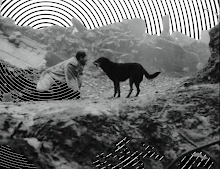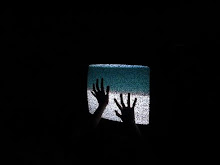Hereafter is an unusual realistic statements in the most crystal-clear terms I have ever read about the EU's lack of credibility in our new multipolar world by Roberto Foa, copied from the euobserver.com where you can find the original article:
"Shortly after September 11th, a frequent refrain among the American commentariat was: “why do they hate us?” (...)
These days, however, it is Europeans as much as Americans who can ask themselves why they attract so little respect in the world. Whereas once a Chinese white paper declared Europe ‘the world’s rising superpower’, in recent weeks a chorus of international commentators has begun to deride Europe’s pretensions to international leadership. Kishore Mahbubani, the Dean of Singapore’s Lee Kwan Yew School of International Affairs, charges that Europe no longer understands ‘how irrelevant it is becoming to the rest of the world’, while Richard Haass, the president of the US Council on Foreign Relations, has publicly declared ‘goodbye to Europe as a high-ranking power‘. And these are hardly voices from the wilderness or the lunatic fringe. Mahbubani is Dean of one of Asia’s rising policy institutes, and Haass is a longstanding nonpartisan diplomat.
So why are European countries riding this wave of derision? After all, Europeans, moreso than Americans, have the right to see their continent as a fundamentally benign influence. Europe is a peaceful juggernaut, a bumbling assortment of nation-states whose foreign engagements seem limited to disbursing development aid and hosting long if slightly meandering conferences. We have our internal problems, but not such as to merit the contempt of elites in New Delhi, Beijing or Cairo. Yet long gone seems the time, just 6 months ago, when Al-Jazeera could run a documentary entitled ‘Europe: a fast-track superpower’.
So, why has the cheering so quickly turned to sneering? I do not think it can be dismissed as mere envy: outsiders are not simply jealous of European wages, holidays, and pensions. Nor do I think it is despair at Europe’s torturous process of internal decision-making, despite how often these make the headlines in a post-Lisbon Europe.
Instead, then, I would suggest a more inconvenient truth. Countries across the world have long resented western meddling and moralising, and have found the confidence to talk down a Europe whose global influence is no longer taken for granted.
As an example of our limited soft power, consider that when I ask people around the world, what ‘Europe’ means for them, I am always surprised how little they mention social democracy, or human rights, or even ‘the good life’. Overwhelmingly, the most common response is a memory of European colonial rule, and an abiding sense of our satisfied self-superiority. While Europeans mark history by 1918, 1945, and 1989, the rest of the world still remembers 1842, 1857, and 1884, and always will. Many opportunities have come and gone to draw a line under the past, yet many see Europe as a closed fortress offering few opportunities for integration or innovation.
Can Europe move on from this past? The answer is yes, but if Europe is to become the multilateralist leader that we desire it to be, urgent rebranding is required. The first step would be to project a more inclusive image, of a continent open to new people and new ideas: in America, the election of a Kenyan’s son to the presidency may have done little to erase the inequalities of the US inner city, but in a single stroke, it has allowed the country to reinvent and renew itself as a global nation. Europe has successful migrants, but it is a sad fact that there was more ethnic diversity in Stalin’s politburo than in today’s European Commission.
Second, we can try to tell a consistent story to the outside world. Our preferred narrative is a very Christian tale of fall and redemption, a story about a continent ravaged by centuries of war and conquest that, from the rubble of 1945, decided to make peace with itself and divest its colonial ambitions. If only we could tell this story credibly, the European Union might grow into the multilateral leader to which it aspires. But every time we must face the outside world, the mask just keeps on slipping; the old national rivalries and machinations are there to see, ugly and protruding around the edges. When the moment comes to reform the UN Security Council or voting rights in the Bretton Woods institutions, we dig in our heels and bury our heads in the sand: I honestly do not think the Germans realise how ridiculous they look demanding another European Security Council seat when there is not yet space for India. Likewise, much is made of Europe’s Common Foreign and Security Policy, but in the Africa missions – the only substantive engagement outside of the European neighbourhood – it is difficult to mistake the post-colonial machinations of French, Belgian and British interests.
Next, we would also do well to break with the belief that respect will be earned through doling out ever larger sums of foreign aid, especially when such sums are tied to an unending moralising discourse. What the wretched of the earth want is not our money, but our respect. We pay out aid unrelentingly, but barely consider whether the money is spent effectively, or the distortions we introduce into local politics, and this demonstrates an even greater contempt than to give nothing at all. We have yet to learn the lesson of China’s diplomatic success in Africa, which is that developing nations are less interested in process than achieving results.
Finally, Europe must stop hiding behind the United States, and begin taking responsibility for its own decisions. Yet this cannot happen as long as Europe is run by a centre-right gerontocracy that seems more comfortable clinging to the Atlantic past, than in adjusting to our multipolar present. Our leaders spend their days determined to preserve token participation in NATO, obsessing over President Obama’s will-he-won’t-he participation in the joint EU-US summit, and scrabbling over their de jure powers in the Bretton Woods institutions, when they need to realise that the rules of the game are changing, and the old networks are rapidly losing their influence. Ironically, the Americans seem to understand this better than ourselves these days.
So if these are the challenges facing the European Union, what are the prospects for achieving the change we need? That will be the topic of my next entry."
Crouching and Screaming
-
Wonderful 1978 illustrations by Outi Markkanen (Finland, b.1951) on Kuriosas.
Visit the link for many more illustrations from *Kurnau ja Kamaluu*.





















No comments:
Post a Comment